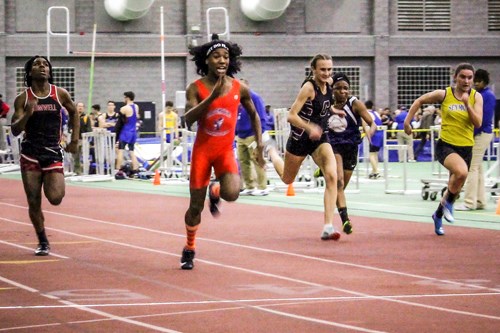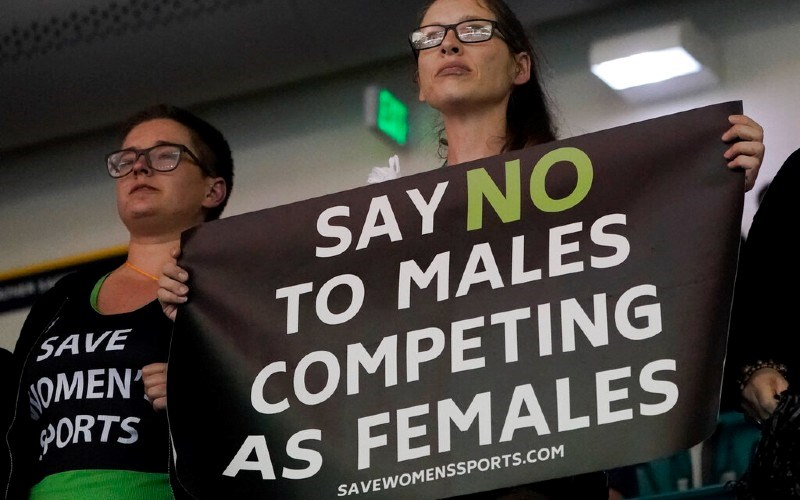The Supreme Court last week elected not to hear the West Virginia case while a lawsuit against the state's law continues. The lawsuit against the state's Save Women's Sports Act was filed in 2021 by The American Civil Liberties Union on behalf of a 12-year-old boy who goes by the name of Becky Pepper-Jackson. The Fourth U.S. Circuit of Appeals ruled in early January that the ban is constitutional.
After The Supreme Court decided not to intervene, the ACLU emailed a statement to The Associated Press in which Pepper-Jackson is quoted as saying: "I am so happy that the Supreme Court saw that this stay was not an emergency. I still get to play with my friends and teammates on the track team. That's all I want to do, be with my friends and be the girl that I am."
Attorney General Morrisey, who is also a Republican candidate for governor of West Virginia, appeared Monday on American Family Radio. He believes the Court wants nothing more than to see how the lawsuit plays out before getting involved.

"We were deeply disappointed, but this a temporary procedural setback. The Supreme Court decided not to rule on the procedural issue, but when this gets back to the merits, and this issue gets fully teed up, it's going to be very clear that what the West Virginia legislature did is completely consistent with the Constitution, with Title IX and with basic science and common sense," Morrisey told show host Jenna Ellis. "As this record goes up further in the process, ultimately we're going to prevail."
International governing bodies for swimming and track and field have banned transgender athletes from their competitions.
West Virginia is among 20 states that ban transgender athletes from participating in sports consistent with their gender identity, according to Movement Advancement Project, a pro-LGBTQ rights think tank.
West Virginia Republican Governor Jim Justice also recently joined other states in signing legislation to ban gender-affirming care for minors.
The empire strikes back
As Republican-led states make gains with restrictive transgender rights initiatives, the Biden White House is pushing back.
The same day the Supremes elected not to hear the West Virginia case, President Joe Biden's administration proposed adjusting Title IX to prevent schools and colleges from enacting outright bans on transgender athletes. Violating schools could risk losing federal funding.
Title IX, federal legislation aimed at gender-equity, celebrated its 50th anniversary last year.
"Here we have an issue that's percolating in states, and what does the Biden administration do? They start to set up a rule where if you don't do what we want, we will take your money away from you," Morrisey said.
 The Supreme Court could ultimately shape the transgender sports discussion by rulings in either the West Virginia case or Title IX challenges.
The Supreme Court could ultimately shape the transgender sports discussion by rulings in either the West Virginia case or Title IX challenges.
"Right now, we're back in the Fourth Circuit. We'll complete the process, finish our submissions, and then the Fourth Circuit's going to rule on the merits on our individual case, and then you're going to see the actions with the Title IX release," Morrisey described.
"With that, in a comment period you're going to get about 60 days or so, and maybe it gets extended. I would expect the Biden administration would issue their final comments probably sometime the latter part of this year. Then there would be court actions that would begin next year."
Morrisey accuses the administration of playing with settled law strictly to make its Democratic voters happy.
"We've been down this road before where they're trying to put the spending authority that they have into driving broad-based policy issues. This is an issue that's being addressed by the states. The states are going to be resolving it up in the courts – and now, the Biden administration, to appease their base, they're trying to come up with a broad new interpretation of what Title IX is all about," he said.
Schools would have some say
The administration's proposal leaves schools the right to consider transgender participation based on the age and competitive level of sports teams. For instance, it's thought that elementary-aged transgender students would always be allowed to compete on less competitive teams.
High school and college teams could require tryouts and set limits on transgender participation. The administration argues that "fairness of competition" should be used as a criterion to determine those.
 Supporters of transgender bans have spoken out against the proposal, while critics of bans say it doesn't go far enough.
Supporters of transgender bans have spoken out against the proposal, while critics of bans say it doesn't go far enough.
"We talk about federal overreach all the time. We look at the Biden administration, and it seems like every single day they're violating the rule of law, they're abusing their power," Morrisey said.
Morrisey was critical of the Fourth Circuit's decision to continue the injunction imposed by a lower court.
"We submitted over 500 document entries, 3,000 pages, and the district court judge – no fan of the law – reversed himself, agreed the law was constitutional and said the legislature was correct to be able to say men are different than women biologically. That was a phenomenal victory," he shared.
"Part of the challenge though was that then it went up to the Fourth Circuit where literally there was no reasoning accompanying the Fourth Circuit's decision. They slapped an injunction back on," he said.







